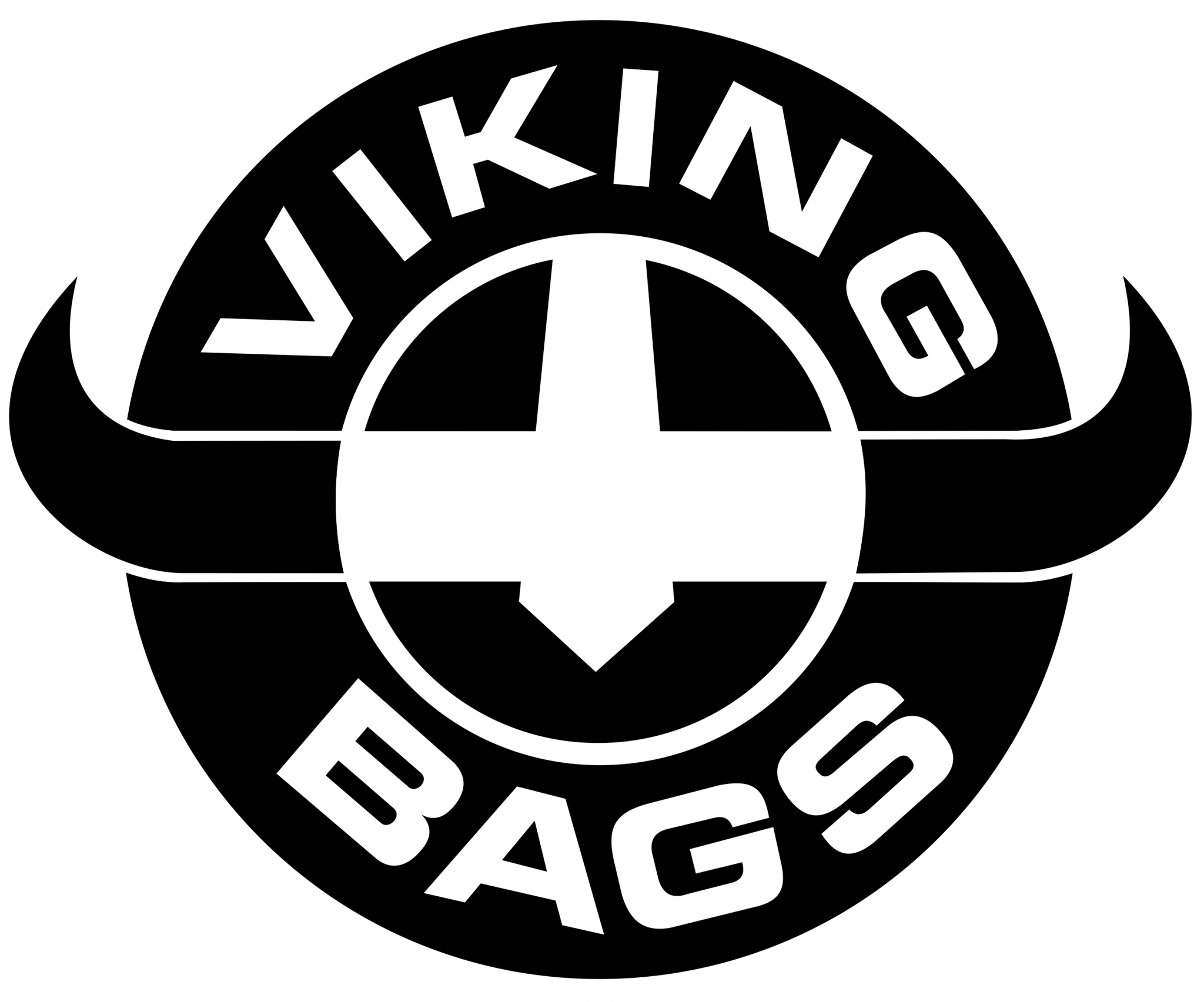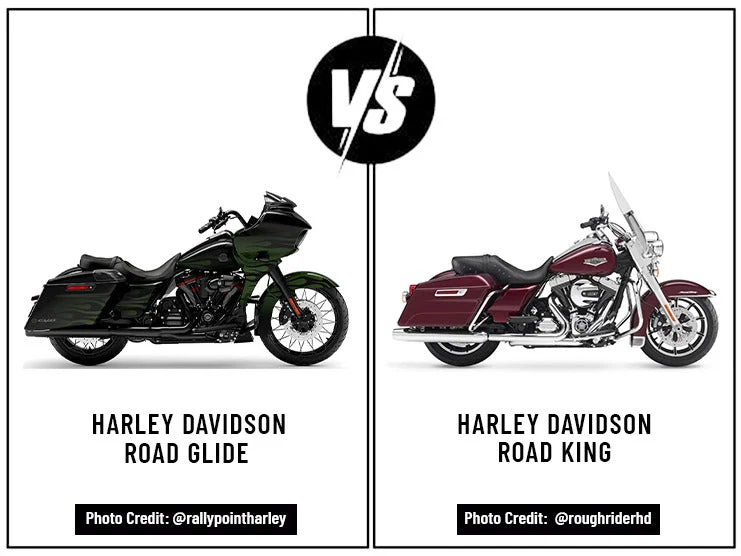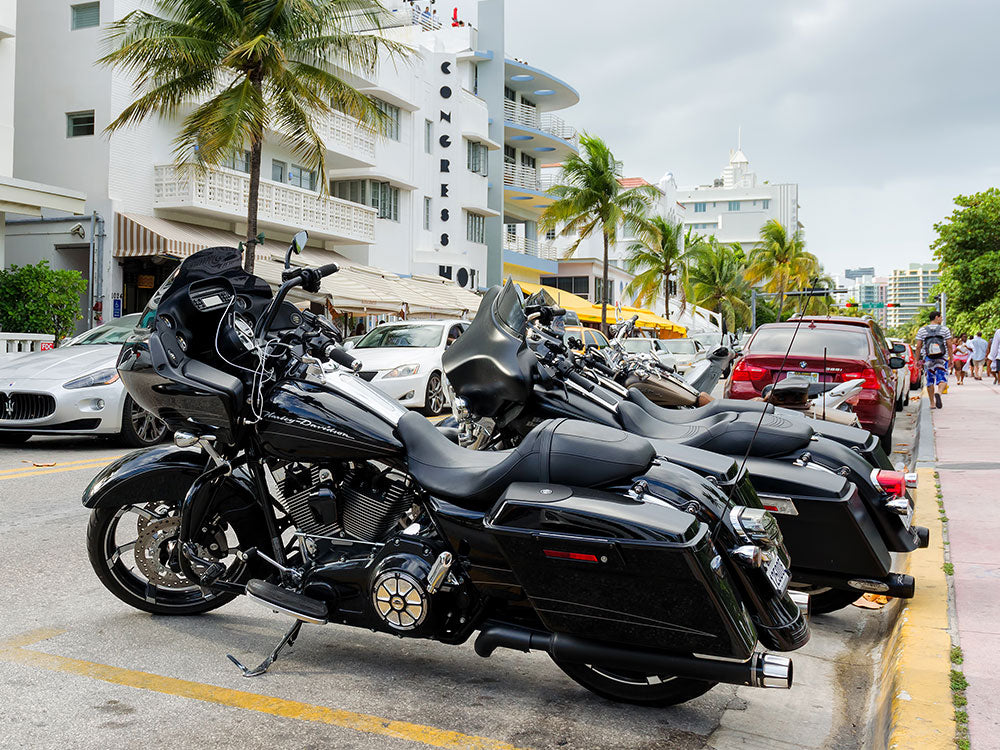Table of Content
Many motorcyclists do not know how to avoid becoming fatigued on long motorcycle rides. This article is a comprehensive guide on how to reduce fatigue during long-distance trips.
1. What Causes Physical Fatigue during Long Motorcycle Rides?
Long motorcycle rides can result in physical fatigue due to remaining still in the same position for an extended length of time. Furthermore, if you are traveling on a bike that prioritizes style, the riding position will likely be uncomfortable.
If you are planning to go on a long trip, choose a touring motorcycle with an adjustable riding position to ensure better comfort.
2. What Causes Mental Fatigue during Long Motorcycle Rides?
Constantly scanning your surroundings, intense concentration, and quick decision-making are required to ensure a safe motorcycle ride. Mental fatigue can impair your judgment and reduce reaction time. The main causes of mental fatigue are stress, lack of sleep, illness, or medication.
3. Tips to Reduce Fatigue On Long Motorcycle Rides
3.1 Get a Comfortable Motorcycle Seat
Try to be as comfortable as possible when riding a motorcycle. It is recommended you get a large comfortable seat that will fit your bottom and can carry your weight. Even a motorcycle seat with six inches of cushioning may not be particularly comfy if you are a middleweight or heavyweight rider. An overstuffed seat with poor padding might be far less comfortable than a slim seat with gel cushioning or high-quality dense foam. Before investing in a new seat, consider purchasing a sissy bar pad to improve comfort.
There are alternatives, such as the AirHawk pad, which equally distributes your weight due to air chambers and allows you to adjust air pressure to better accommodate you.
You can also replace the original foam cushion with a denser foam cushion, or you could remove some of the stock foam and add a gel pad instead.
3.2 Choose the Quickest Route
Finding a route with little to no traffic will ensure you get to your destination as fast as possible. Otherwise, you will frequently have to put your feet on the ground and adjust your posture in stop-and-go traffic, straining your leg and back muscles. It all comes down to research, preparation, and taking into account traffic conditions as you travel to your destination. Avoid taking city streets whenever possible, especially during rush hours. Starting your journey before 6:00 AM allows you to avoid morning traffic since most schools and businesses are not yet open at this time.
3.3 Put on Appropriate Riding Gear
Always invest in high-quality riding apparel, such as a motorcycle helmet, a riding jacket, and riding pants. The front of your motorcycle may also benefit from having a windscreen, which will deflect air and improve aerodynamics which will help reduce wind resistance.
3.4 Eat a Healthy Diet
Eating a healthy diet ensures that you have enough energy to endure the physical demands of riding a motorcycle for a longer period.
A healthy meal may include proteins, carbohydrates, fruit, and coffee. Also, avoid overindulging at lunch, or else you risk going into a food coma an hour later.
Stay away from meals high in carbohydrates. You can easily go into a food coma due to consuming a lot of carbohydrates.
Bring healthy snacks with you to maintain your energy. Protein bars, trail mix, or any small treats you can carry. Rather than eating one large meal, the trick is to consume smaller quantities frequently.
3.5 Take Short Breaks
It's possible to lose focus and fall asleep when riding a motorcycle for an extended length of time. Therefore, it's a good idea to take several breaks during your journey. Taking a break every one to two hours is the general rule of thumb. Walk, stretch, and get your blood flowing again while you're taking a break. Also, take the opportunity to go to the bathroom or do short exercises.
Additionally, standing up while riding a motorcycle is an excellent way to increase blood flow between breaks if you can do so safely.
3.6 Stay Hydrated
Make sure to drink plenty of water and keep yourself hydrated. The amount of water you should consume may vary depending on the humidity, temperature, and physical condition.
On average, about two liters or a half gallon is the recommended amount of water you should drink. You will need to drink even more after actively riding. You can store water in your saddlebags, tour packs, or motorcycle backpacks.
3.7 Get Proper Sleep
Riding while you are sleep-deprived can have an adverse effect on your physical and mental health. Before you embark on a long journey, try to get a full night's sleep. Also, make plans to stop and sleep at a hotel if you become fatigued and it is late evening.
Riding while drowsy is as dangerous as driving drunk or high.
Getting less than six hours of sleep two nights in a row will hinder a rider's ability to pay attention and respond quickly.
3.8 Stretching
Stretching is another way to reduce physical exhaustion. Evidence suggests that stretching exercises target and loosen muscles that cramp up when riding a bike. Before beginning any fitness regimen, make sure to consult your doctor.
3.9 Use Ear Plugs
Wearing earplugs will protect your ears from being defeated by loud wind and engine sounds.
By reducing unnecessary noise, your ears can filter and be alerted to sounds like horns or sirens.
Though there are many different types of earplugs to choose from, foam earplugs you squeeze between your fingers and jam into your ear canals are still the best options. They are affordable, easy to find, and reliable.
3.10 Ride With a Friend
On long rides, fatigue has also been attributed to the monotony of riding alone. If you prefer to ride alone and want an authentic riding experience, you will need to look into the other solutions covered in this article. However, if you don't mind riding with a companion, it is encouraged you do so.
4. Risks Associated with Riding While Fatigued
Motorcycle riding requires complete concentration and intense focus to ensure safe travel. When riders become tired during long rides, their mental state becomes weakened which may increase the risk of making mistakes and getting into accidents.
Here’s how riders are affected by mental fatigue:
- Delay in response time
- Increases irritability
- Reduces fine motor skills
- Reduces visual acuity
- Less attention to traffic and road conditions
5. Last Words
Long motorcycle rides can be tiring, exhausting your mind and body. It is best to fully prepare yourself before planning long rides. If you are planning to go on a long motorcycle ride, review these tips to help keep yourself safe.













Leave a comment
All comments are moderated before being published.
This site is protected by hCaptcha and the hCaptcha Privacy Policy and Terms of Service apply.